- All
- [Open Science Policies]
- Auvergne-Rhône-Alpes
- Bourgogne-Franche-Comté
- Brittany
- Centre-Val de Loire
- Corsica
- DROM-COM
- Grand Est
- Hauts-de-France
- Île-de-France
- Normandy
- Nouvelle-Aquitaine
- Occitania
- Pays de la Loire
- Provence-Alpes-Côte D'Azur
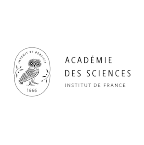
Académie des sciences
Created by Colbert in 1666, the French Académie des Sciences is an assembly of scientists, chosen among the most distinguished French and foreign specialists. It examines the political, ethical and societal issues surrounding the current and future scientific topics. The Academy reflects, anticipates, explains and pronounces itself, mainly through opinions and recommendations and takes position when necessary. It aims to provide policy makers with a framework of expertise, counsel and alert and more broadly to enlighten the debates and choices of our society. In addition, the French Académie des Sciences supports research, is committed to the quality of science education and promotes scientific life at the international level.
Portail HAL
Open Science Policy

French National Research Agency (ANR)
The French National Research Agency (ANR) is a public administrative institution under the authority of the French Ministry of Higher Education, Research and Innovation. The agency funds project-based research carried out by public operators cooperating with each other or with private companies.
The ANR was founded in 2005 to promote French project-based research and to stimulate innovation by promoting the emergence of collaborative multidisciplinary projects and encouraging collaboration between the public and private sectors. It also aims to strengthen the position of French research at European level and worldwide.
HAL portal
Open science policy
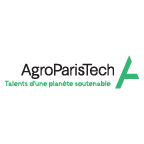
AgroParisTech
AgroParisTech is a French public institute with a rich history that spans over 200 years. A reference among the higher education establishments specialised in life sciences, AgroParisTechholds two key missions:
- To offer high quality training to students and professionals in the different curricula delivered by AgroParisTech;
- To advance scientific knowledge, in close association with public and private research centers, main relevant technical-vocational centers and industrial partners.
Its forward-looking approach is aimed at addressing the main global challenges of the 21st century:
- Feeding the population in a sustainable way,
- Protecting natural resources,
- Fostering innovation,
- Developing the bioeconom.
While doing so, it addresses the following fields: agricultural sciences and technologies, forestry, life sciences, food technology, biotechnologies, environment, nutrition, health, land and natural resources management, as well as related public policies.
HAL Portal
Open Science Policy
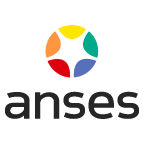
ANSES
The French Agency for Food, Environmental and Occupational Health & Safety (ANSES) was created on 1 July 2010. It is an administrative public establishment accountable to the French Ministries of Health, Agriculture, the Environment, Labour and Consumer Affairs.
ANSES undertakes monitoring, expert assessment, research and reference activities in a broad range of topics that encompass human health, animal health and well-being, and plant health. It offers a cross-cutting perspective on health issues by assessing health risks and benefits, often through the prism of the human and social sciences. Its monitoring, vigilance and surveillance work provides input for risk assessment. ANSES fully addresses all types of risks (chemical, biological, physical, etc.) to which a person may be subjected, intentionally or otherwise, at all ages and stages of life, including through exposure at work, while travelling, while engaging in leisure activities, or via their diet.
The Agency also assesses the effectiveness and risks of veterinary medicinal products, plant protection products, fertilisers, growing media and their adjuvants, as well as biocides, with a view to delivering marketing authorisations. It also provides assessments of chemicals within the framework of the European REACh regulations.
Read more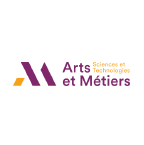
ENSAM – Arts et Métiers Sciences et Technologies
Since its founding in 1780, Arts et Métiers has been committed to meeting constantly evolving industrial challenges and societal issues. What is its primary task? To train specialist engineers in the field of sustainable technology: engineers capable not only of designing environmentally friendly products and systems, but also of overseeing an industrial organisation by controlling the risks and costs.
A disseminator of knowledge and innovation, Arts et Métiers also contributes to their production thanks to 14 research laboratories and one Doctoral School. The scientific teams are engaged in five major strategic priorities in as many economic sectors: transport, energy, health, housing and production. Research is undertaken in 20 different fields; such as digital engineering, biomechanical design, thermal energy and collaborative robotics.
Portail HAL
Politique Science ouverte

Autorité de sûreté nucléaire et de radioprotection
The French Authority for Nuclear Safety and Radiation Protection (ASNR) oversees civil nuclear activities in France on behalf of the French State. It also carries out research, expert assessments, training, and public information in the fields of nuclear safety and radiation protection.
Read more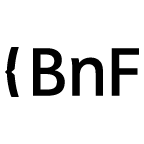
Bibliothèque nationale de France
The Bibliothèque nationale de France (BnF) is a public institution, under the jurisdiction of the French Ministery of Culture. Its missions are to collect, catalogue, preserve, enrich and spread the national documentary heritage.
Read more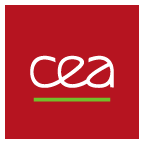
CEA – French Alternative Energies and Atomic Energy Commission
- defence and security,
- low carbon energies (nuclear and renewable energies),
- technological research for industry,
- fundamental research in the physical sciences and life sciences.
HAL Portal
Open Science policy
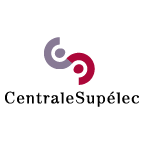
CentraleSupélec
CentraleSupélec is a public institution under ministerial charter, devoted to the sciences and engineering. This charter is shared between the Ministry of Higher Education, Research and Innovation, and the Ministry of Economy, Industry and Digital Technologies.
CentraleSupélec was officially established on January 1st, 2015, bringing together two leading engineering schools in France; Ecole Centrale Paris and Supélec. The co-operation between our two grandes écoles, as they are known in the French system, had progressively been gaining momentum since 2009, with sustained alliance in three core areas: engineering education, executive education and research.
Since 1969, CentraleSupélec schools have shared the same admissions process; by way of competitive entrance examinations. The similarities in our respective student populations naturally led to a certain harmony in terms of our approach to innovation, entrepreneurship, internationalisation and leadership development. Our journey towards becoming CentraleSupélec, has allowed us to consolidate our research to cover all of the engineering and systems sciences.
Today CentraleSupélec boasts multiple campuses across the country; in the Paris region, Metz and Rennes. We have 4200 students and 370 faculty members and researchers, all of whom interact with our global network: three international campuses (China, India and Morocco) and five associated laboratories (Brazil, Canada, The United States and China). We also have successful partnerships with 176 international universities and 140 corporate institutions. Our academic and research excellence is nestled in our firm and fruitful cooperations with large national institutions such as the CNRS, CEA, INRIA, ISERM and ONERA.
Read more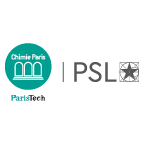
Chimie ParisTech
Chimie ParisTech – PSL, établissement-composante de l’Université PSL, forme depuis 120 ans des ingénieurs chimistes, généralistes, dotés d’un grand sens de l’innovation et fortement appréciés des entreprises et des structures de recherche académiques internationales.
Its research and curriculum have ensured the school’s status as one of the most prestigious engineering schools in France. Since its creation, Chimie ParisTech – PSL has endeavored to improve the industry in France in two ways. First, by training excellent engineers and being a breeding ground for business talent. Secondly, by conducting cutting-edge research on all aspects of chemistry, from basic research to applied research.
Chimie ParisTech – PSL’s program is excellent, original and complete, with a balance of skills between scientific disciplines, entrepreneurship and management. Collaborating with the leading research companies and organizations, it is home to laboratories that conduct cutting-edge research, especially in the fields of energy, materials, industrial processes and health.
Today’s world faces several key challenges: health, the environment and energy. Chemistry is the central discipline among the sciences of matter. As such, it plays a key innovative role in these areas and contributes significantly to the scientific, technological and societal progress of the future.
This societal approach through chemistry remains a tool of choice to solve a wide range of problems. Such examples include the design and preparation of new therapeutic molecules, eco-compatible industrial production processes, tools for the control of energy sources as alternatives to fossil fuels, and quantum information processing.
In this context, Chimie ParisTech – PSL wants to develop an approach that will improve the understanding of future students and the general public of chemistry, its contributions and its professions.
Read more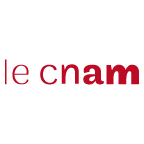
Cnam (Conservatoire national des arts et métiers)
The Conservatoire national des arts et métiers is where the worlds of academics and professional activity come together.
It is the only higher education establishment dedicated to life-long professional training.
The Cnam proposes training courses developed in close collaboration with companies and professional organizations in order to provide the optimum answer to their needs and to those of their employees. The Conservatoire steers 20 regional Centers and 180 training centers having their Head Office in Paris. Cnam’s staff in Paris, Ile de France and other regions includes permanent teaching and non-teaching members as well as visiting lecturers from business world:
- 557 permanent and contracted professors
- 1 964 part-time professors
- 1 105 administrative staff
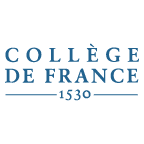
Collège de France
Collège de France is a public higher education and research institution, which is unique in France and has no equivalent abroad. Since the 16th century, Collège de France has had a two-fold mission: to be a forum for cutting-edge research and teaching.
Collège de France is committed to fundamental research, in partnership with the CNRS, INSERM and several other major institutions, but what differentiates it is that it teaches “knowledge in the making in every field of literature, science and the arts”.
Collège de France was founded by Francis I, who appointed the first “Lecteurs royaux” in 1530. Their role was to teach disciplines which were not yet recognized at university level. Today, these former lecteurs royaux have become professors working alongside several hundred researchers, engineers, technicians and administrative staff. Collège de France is structured around chairs. They cover a huge range of disciplines ranging from mathematics to the study of major civilizations, and include physics, chemistry, biology and medicine, philosophy and literature, the social sciences and economics, prehistory, archaeology and history, and many more. Six of the fifty-one chairs are annual chairs and have new incumbents every year and six are International. They promote responsiveness and scientific teaching in fields which are emerging or require a multidisciplinary approach.
Many specialist conferences and a multidisciplinary symposium on a major social theme are organized every year to provide opportunities for the national and international scientific community to meet and exchange ideas.
From the very outset, the basic premise that chairs are not permanent has underpinned the creative energy of this academic community. Therefore, when incumbents retire, new appointments are made on the basis of the very latest scientific developments. New members are elected by the Assembly of Professors. There is no specific academic rank stipulated for nominees; the only relevant factors are the significance and originality of their work. The possibility of modifying chairs is a principle which avoids the rigidity of fixed academic disciplines. Collège de France is therefore permanently adapting to developments in the sciences and remains a focal point for the scientific community.
Most lectures take place in Paris. However, all professors are free to deliver some of their teaching in other major cities in France or abroad. A special welcome is extended to scholars from abroad. Every year, over 50 scholars from abroad are invited to deliver a series of lectures. The teaching staff includes tenured professors from abroad. Many young PhD or post-doctoral researchers from all over the world also work in the laboratories. Broadcasts of lecture courses on the Collège de France website are extremely popular and this plays a part in disseminating knowledge and extending the reach of the institution worldwide.
Collège de France has valuable resources in the form of rare books and some of the best specialist libraries in Europe. These research tools for professors and researchers attached to Collège de France are open to external specialists and attract an increasing number of researchers from abroad.
Collège de France laboratories and specialist institutes play host to researchers and young guest teams working on medium-term programs. Internal, guest or external teams are always affiliated to other research bodies with specialist infrastructures, so that they can work over the long-term, retaining a degree of flexibility which is the key to innovation.
Lectures are open to all, free of charge and without prior registration, subject to availability of seats. They begin annually in October with an interdisciplinary symposium. The calendar of lectures is available at the reception desk or on the website.
Collège de France publishes the full text of inaugural lectures (collection Fayard), proceedings of symposia and series of lectures (collection Odile Jacob), the Letter of Collège de France, and a “yearbook” which summarizes each professor’s teaching for the year.
The website, which underpins the institution and its knowledge dissemination mission, offers web users access to the teaching calendar and forthcoming events, a large number of lectures and symposia in audio and video formats, as well as scientific materials and electronic publications.
Read more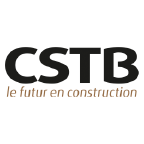
CSTB (Scientific and Technical Center for Building)
The Scientific and Technical Center for Building, CSTB, is a public industrial and commercial company (EPIC), aiming to serve its clients and the public interest.
Its objective is to imagine the buildings and cities of the future by guiding and securing sustainable construction and renovation projects, to improve the quality of life of the people who use them by anticipating the effects of climate change. To reach these goals, it brings together multidisciplinary skills and focuses on five key activities: research and expertise, assessment, certification, testing and the dissemination of knowledge. Its field of expertise covers construction products, buildings, and their integration into neighborhoods and cities.
Read more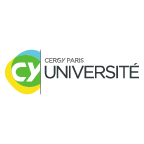
CY Cergy Paris Université
The university’s goal is to become one of the world’s leading universities and to gain an international reputation for research. Its strategy is based on the qualitative and quantitative recruitment of doctoral students, post-doctoral fellows and research lecturers, and we strive to develop strategic alliances and support innovation. Its ambition is to help address the major societal challenges of the 21st century.
CY Cergy Paris Université is renowned for its dynamism and its firm commitment to developing research excellence. It is rooted in its territory and strongly oriented towards the international market. Its goal is to help address the challenges of the 21st century and it is committed to driving societal transition. It is one of the laureate universities of the Investment for the Future Programme. The CY Initiative I-Site is a joint initiative between CY Cergy Paris Université and the ESSEC Business School, and is one of the leading higher education and research sites in the world. Its strong points are a better understanding of the global challenges of a changing world, due primarily to scientific and technological developments, coupled with a radically international approach, at the heart of a top-ranking campus for quality of life. CY Initiative systematically bases its implementation on two drivers: excellence in research and economic development.
A successful participant in the European programme of European universities with its EUTOPIA 2050 project and network, CY Cergy Paris Université is also expanding internationally through its strategic alliances. The EUTOPIA alliance brings together the universities of Warwick (United Kingdom), VUB (Belgium), Pompeu Fabra (Spain), Gothenburg (Sweden) and Ljubljana (Slovenia) around common research programmes and joint PhD programmes, as well as support for lecturer-researchers’ mobility.
CY Cergy Paris Université is also the sponsor or partner of two equipments of excellence and six laboratories of excellence, and is involved in the VEDECOM Institute for Energy Transition.
CY Cergy Paris Université carries out its research and development tasks in 25 research laboratories, including 10 CNRS joint research units, three research federations and 7 open labs.CY Cergy Paris Université hosts close to 1,200 researchers, including around 550 doctoral students and 500 tenured research lecturers.
The university participates in the transfer of technology and knowledge to society. It promotes a firm policy for the dissemination and advancement of its research. The university is supported by the Technology Transfer Acceleration Company(SATT) ERGANEO, of which it is a founding member and shareholder. Erganeo is a strategic partner to accelerate and facilitate the transfer of CY knowledge and technology, CY Alliance, to companies of all sizes.
Read more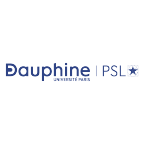
Dauphine-PSL
Its increasingly attractive range of course offerings, the international reputation of its scientific teams, and the recognition of its development model obtained with Equis accreditation all combine to make Dauphine a creative and responsible university with a determined international outlook.
Read more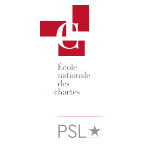
École nationale des chartes
The Ecole nationale des chartes ranks among among the grands établissements of higher education. At the cutting edge of historical research, for which it has continuously and deeply renewed its methods since its foundation in 1821, the School has constantly supported the development of historical methods and the modernisation of the conservation professions, up to and including the current application of digital humanities in these sectors.
Read more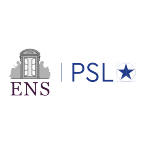
École Normale Supérieure
At the same time a French grande école and a university, the Ecole normale supérieure provides in Paris, at the heart of the Quartier latin, excellent training through research, leading to various teaching and research professions, and contributes to train through research the senior executives of public administrations as well as of French and European companies. The ENS also defines and applies scientific and technological research policies, from a multidisciplinary and international perspective.
Intellectual freedom, multidisciplinarity in humanities and sciences, individual attention to students, bountiful campus life, gathering students and professors from all disciplines, form the heart of the specificities of the Ecole normale supérieure. Since more than 2 centuries, the ENS prepares its students to the most various openings and the highest responsibilities, while being fully invested in the intellectual, scientific and cultural debates of its time – in particular through the multiplicity of the normaliens’ engagement.
Read more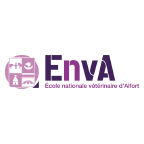
Alfort National Veterinary School (EnVA)
The Alfort National Veterinary School (EnvA) has more than 250 years of history. Established since 1766 in Maisons-Alfort, it has been transformed over the centuries to train future veterinarians, carry out ambitious research actions and treat animals. EnvA is one of 12 public higher education establishments in agriculture, veterinary and forestry under the supervision of the Ministry of Agriculture and Food .
Read more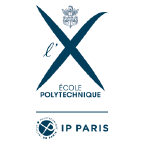
École Polytechnique
As a higher education establishment, École Polytechnique, also known as l’X, naturally seeks to share the most up-to-date knowledge to benefit its students, selected based on the criteria of excellence for which it is renowned.
However, École Polytechnique also creates knowledge, for its professors are both teachers and researchers. It hosts around twenty laboratories, which are closely connected to French national research institutions and committed to prestigious international collaboration. The aim of these laboratories is to achieve results in the form of intellectual property rights and publications in leading journals in both fundamental and applied research.
École Polytechnique’s credo is to be multidisciplinary both in its teaching and research. Structured around ten scientific disciplines, including humanities and social sciences, it focuses its research on eight themes that involve collaboration between the laboratories. Such a model stems from the observation that fruitful innovations accepted by society are born from the confrontation and cooperation of disciplines, including philosophy.
Read more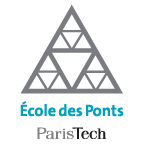
École nationale des ponts et chaussées
École des Ponts ParisTech, created in 1747 under the name École Royale des Ponts et Chaussées, is a higher education establishment that trains engineers to a high level of scientific, technical and general competency. Apart from civil engineering and spatial planning, historically the source of its prestige, the School develops high-quality programs and research associated with the energy transition.
Read more